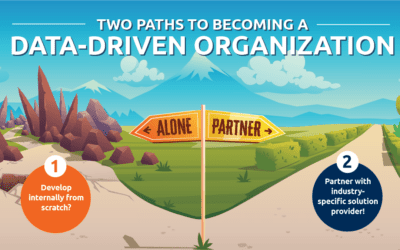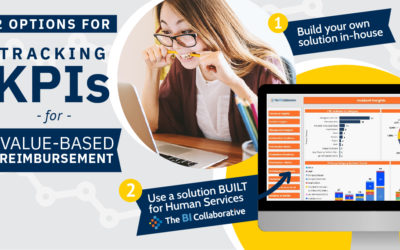In January 2025, Illinois took a bold step toward advancing equity and inclusion by passing the Dignity in Pay Act — legislation that will phase out the use of subminimum wage (SMW) under 14(c) certificates by the end of 2029. While the law directly impacts organizations employing individuals with disabilities at SMW, it signals a shift in focus toward greater outcome tracking and employment integration, which may encourage providers to rethink service delivery and performance monitoring statewide.
Even for IDD providers that don’t currently operate 14(c) programs, the writing is on the wall: Illinois is making a decisive move toward data transparency and tracking performance outcomes, while laying the groundwork needed to support performance-based, outcome-driven funding approaches already in place in other states.
The Dignity in Pay transition plan calls for developing statewide data infrastructure, expanding outcome reporting, and enhancing person-level service tracking — setting the stage for potential outcomes-based funding models in the future. In this environment, the ability to consistently monitor staffing trends, service quality, and person-centered outcomes across systems is no longer a luxury — it’s a necessity.
At The BI Collaborative, we’re helping IDD providers in Illinois and across the country navigate growing pressures to leverage data more strategically. Our platform pulls together data from EHRs, billing systems, HRIS, Excel spreadsheets, and more — automating the manual work staff once had to do to create reports for leadership, boards, and state agencies. For organizations looking to use data to demonstrate quality and compliance, maximize reimbursement opportunities, or realign program resources, we provide a single source of truth for the metrics that matter most.
Illinois providers don’t need to navigate this transition alone. For the individuals they care for, the Dignity in Pay Act presents an opportunity to advance equity and expand community integration. For leadership, it offers a chance to modernize workflows, streamline reporting, and build the infrastructure needed for long-term success under the quality-driven reimbursement models already established across a rapidly growing number of states.
If you’re thinking about how your organization can automate reporting processes, improve outcomes, and empower staff to make data-driven decisions, The BI Collaborative is here to help. Click below to find out more.



